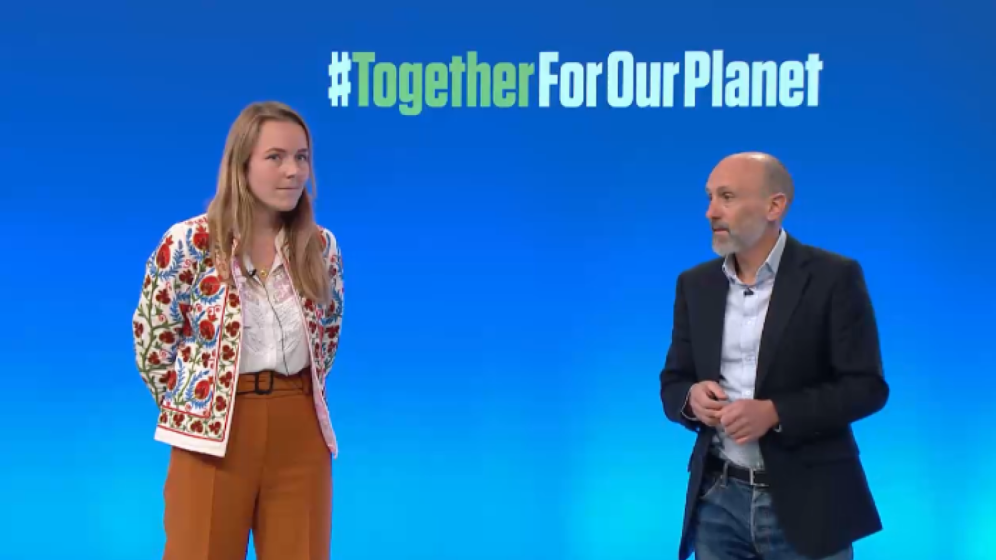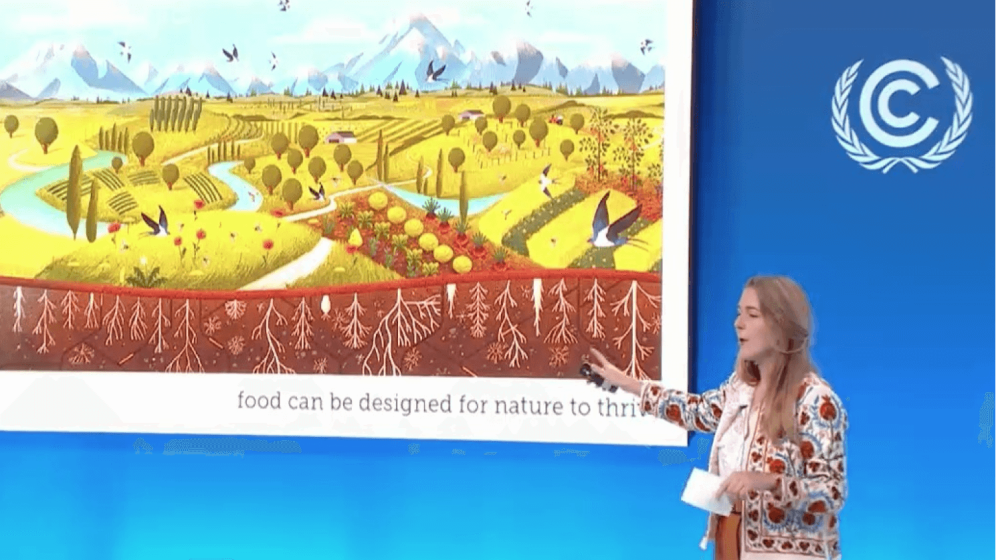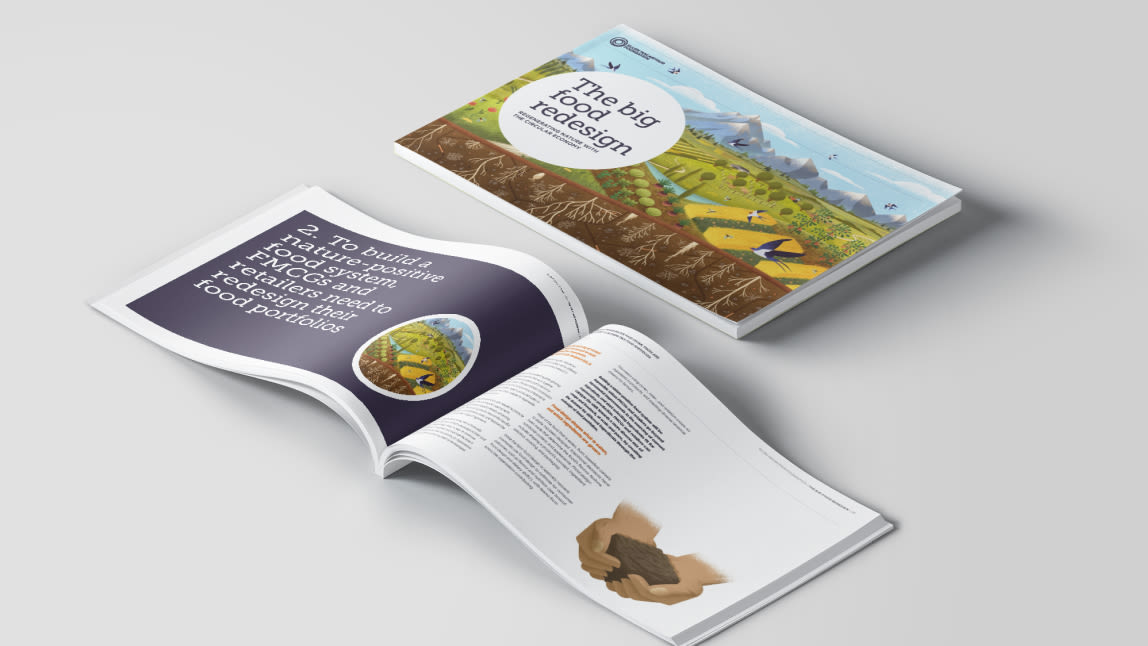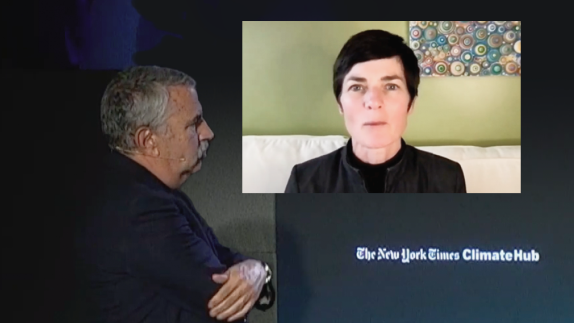A film screening and question and answer session with the Foundation’s Gaëlle Le Gelard and Joss Blériot.
The transition to renewable energyrenewable energyEnergy derived from resources that are not depleted on timescales relevant to the economy, i.e. not geological timescales. is critical to tackling climate change, but it’s only half the story. In order to reduce emissions and meet the targets set out in the Paris Agreement, we need to change the way we make and use things — including our food.
In this film screening, presentation, and question and answer session at the Global Climate Action Hub in the COP26 Blue Zone — Food design: a powerful lever to address climate change — the Foundation’s Design Lead, Food, Gaëlle Le Gelard, and Executive Lead, Institutions, Governments, and Cities, Joss Blériot, explained how redesigning our food system can play a huge role in tackling climate change and biodiversity loss.
From regenerative agriculture to food design — using diverse ingredients and upcycling parts of crops that are currently wasted — food brands and manufacturers can transform the way food is produced. Rather than bending nature to produce food, food can be redesigned for nature to thrive.
Gaëlle Le Gelard explained that farmers and food brands had already started to make changes, but much more needed to be done in order to scale solutions — it will require and entire mindset shift on the part of all stakeholders in the food system.







